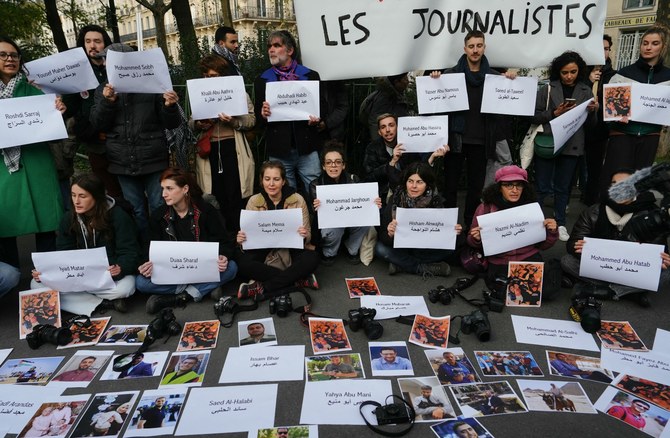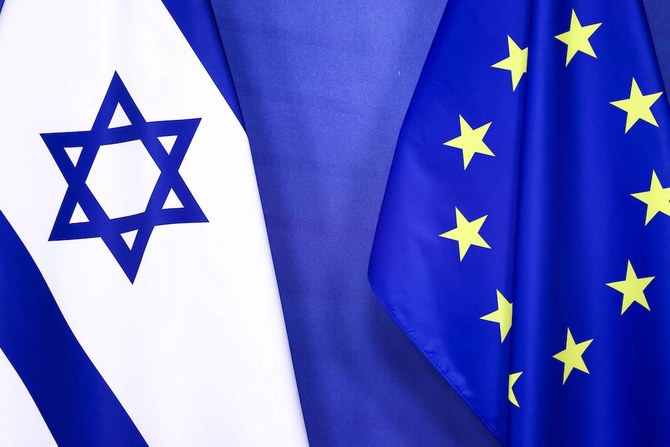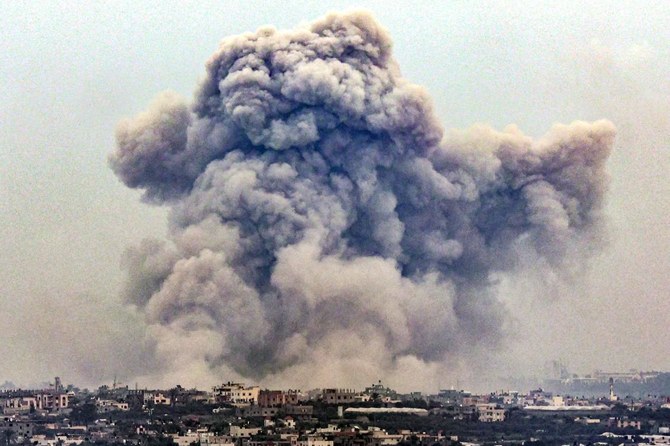
The recent eruption of violence in Israel and Gaza has created a huge spike in the number of journalists killed globally, highlighting the dangers that many journalists — and especially those operating in Gaza — face.
The Committee to Protect Journalists recently reported that the “Israel-Gaza war has become the deadliest month for journalists covering conflict” since the organization started investigating and recording journalist fatalities in 1992. As of Tuesday, according to the Committee to Protect Journalists, 42 journalists and media workers had been confirmed killed since the Oct. 7 Hamas attack, including 37 Palestinians, four Israelis and one Lebanese. Other sources suggest that the toll might be even higher.
Since the committee has been tracking the deaths of journalists who were confirmed to be killed due to their work (classified as murdered, killed in crossfire or combat or killed during a dangerous assignment), the deadliest year was 2009, when 76 journalists were killed. The year 2023 might set a new record if the last month’s trend continues.
The four Israeli journalists and media workers known to have been killed so far died during the Hamas attack on their communities and a music festival. The families of two of them were also killed in the attack.
Similarly, though in greater numbers, many Palestinian journalists have died alongside their families in the last few weeks. Their deaths demonstrate that simply existing in Gaza right now is risky, as many of them died in Israeli airstrikes that also killed their families, friends and colleagues. Some of the Palestinian journalists, as well as the Lebanese journalist, were killed specifically while reporting on the war.
Journalists in Gaza play a crucial role in ensuring that Palestinians’ voices and experiences are heard outside of the Strip
Kerry Boyd Anderson
Journalists in Gaza play a crucial role in ensuring that Palestinians’ voices and experiences are heard outside of the Strip. While many Israeli and foreign journalists reported from inside Israel on the Hamas attack, Egypt and Israel have blocked foreign journalists from entering Gaza — except for a few that are embedded with the Israeli military. The inability of foreign journalists to report on the ground in Gaza makes the work of local Palestinian journalists all the more important.
Yet, journalists in Gaza face immense challenges. As the large number of those killed demonstrates, they face significant risks of death or injury. They also have to cope with internet outages, extreme transportation difficulties and insufficient water and food. They face potential repression from Hamas as well as Israeli efforts to undermine their credibility. They are exhausted and traumatized.
While those challenges often exist for journalists in war zones, journalists in Gaza must deal with a less common challenge for journalists covering wars: their own families and communities are caught up in the conflict that they are covering. Multiple journalists have reported as airstrikes slam into buildings around them, sometimes as they comfort their own children while broadcasting. In addition to finding food, water and rest for themselves, they struggle to meet their family’s most basic needs.
As journalists in Gaza visit hospitals and other sites, they are afraid to find loved ones in the rubble or among the dead and injured. They fear that, while they are out doing their work, their families will die at home. For several Palestinian journalists, these fears have become reality.
As journalists in Gaza visit hospitals and other sites, they are afraid to find loved ones in the rubble or among the dead
Kerry Boyd Anderson
Perhaps the most well-known case was the tragic experience of Al Jazeera bureau chief Wael Al-Dahdouh, who was reporting on air on Oct. 25 when he learned that a strike had hit the building where his family was staying after fleeing northern Gaza. On live TV, Al-Dahdouh learned that his wife, teenage son, young daughter and baby grandson had been killed. Video footage showed him arriving at the site of the strike and then mourning over their bodies at the hospital. Showing his mettle as a dedicated journalist, Al-Dahdouh shared his personal tragedy with the world and continued reporting on the war.
The current war in Gaza has led to a massive spike in journalist deaths, but the Israeli-Palestinian conflict has long been a dangerous assignment. The Committee to Protect Journalists issued a report in May that found that there had been “at least 20 journalist killings by members of the Israel Defense Forces” over the last 22 years, adding that “no one has ever been charged or held responsible for these deaths.” Of those, about 10 percent were foreign journalists and the other 90 percent were Palestinian.
The extreme danger and difficulty for journalists in Gaza today highlights the wider, ongoing dangers that journalists face in different parts of the world. Syria has been a very deadly place for journalists in recent years. The record high number of journalist deaths in 2009 was largely due to 33 journalists being killed in the Philippines. Countries such as Somalia, Ukraine, Mexico, Iraq, India, Pakistan and Afghanistan have also been especially dangerous places for journalists in recent years. Warfare is a major contributor to journalist fatalities, but gang violence, corruption and government repression also play important roles.
Journalists play a vital role in ensuring that the voices of those suffering from war or oppression are heard, as well as providing information that governments and other leaders might want to stifle. Many journalists bravely confront risks in order to bring information and people’s stories to the world. Today, journalists in Gaza need support and encouragement as they do vital work in the most difficult of circumstances.
Kerry Boyd Anderson is a professional analyst of international security issues and Middle East political and business risk. X: @KBAresearch











